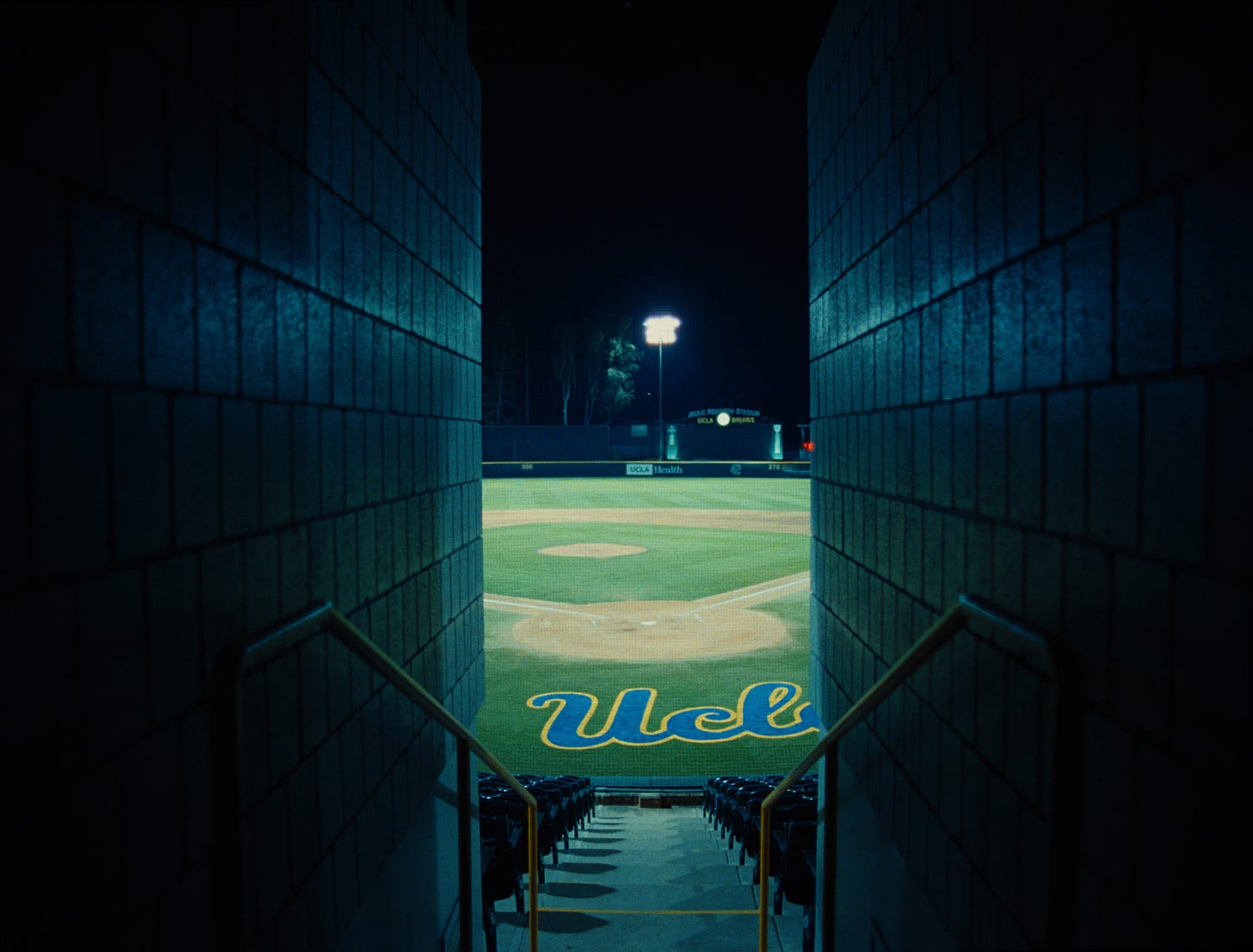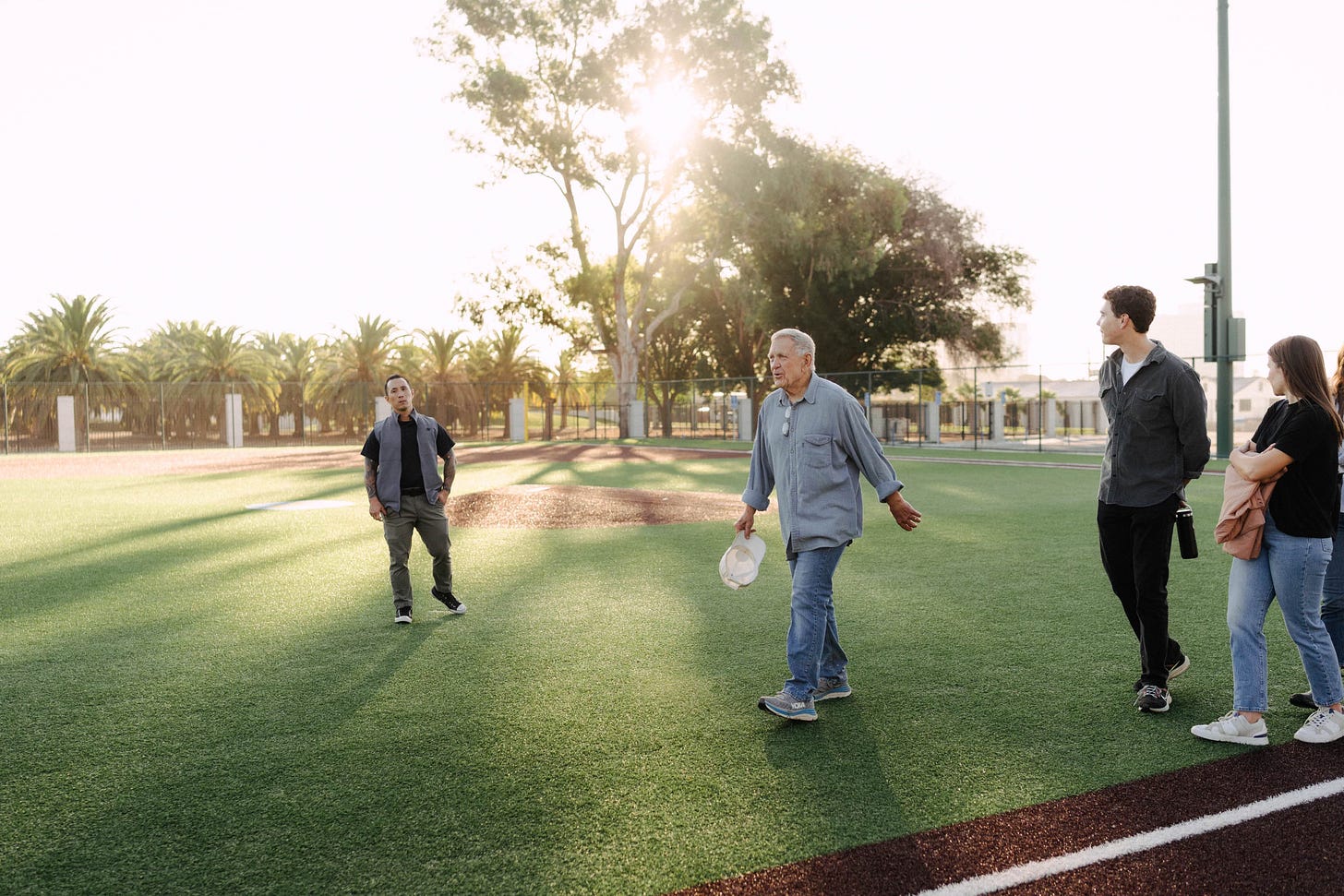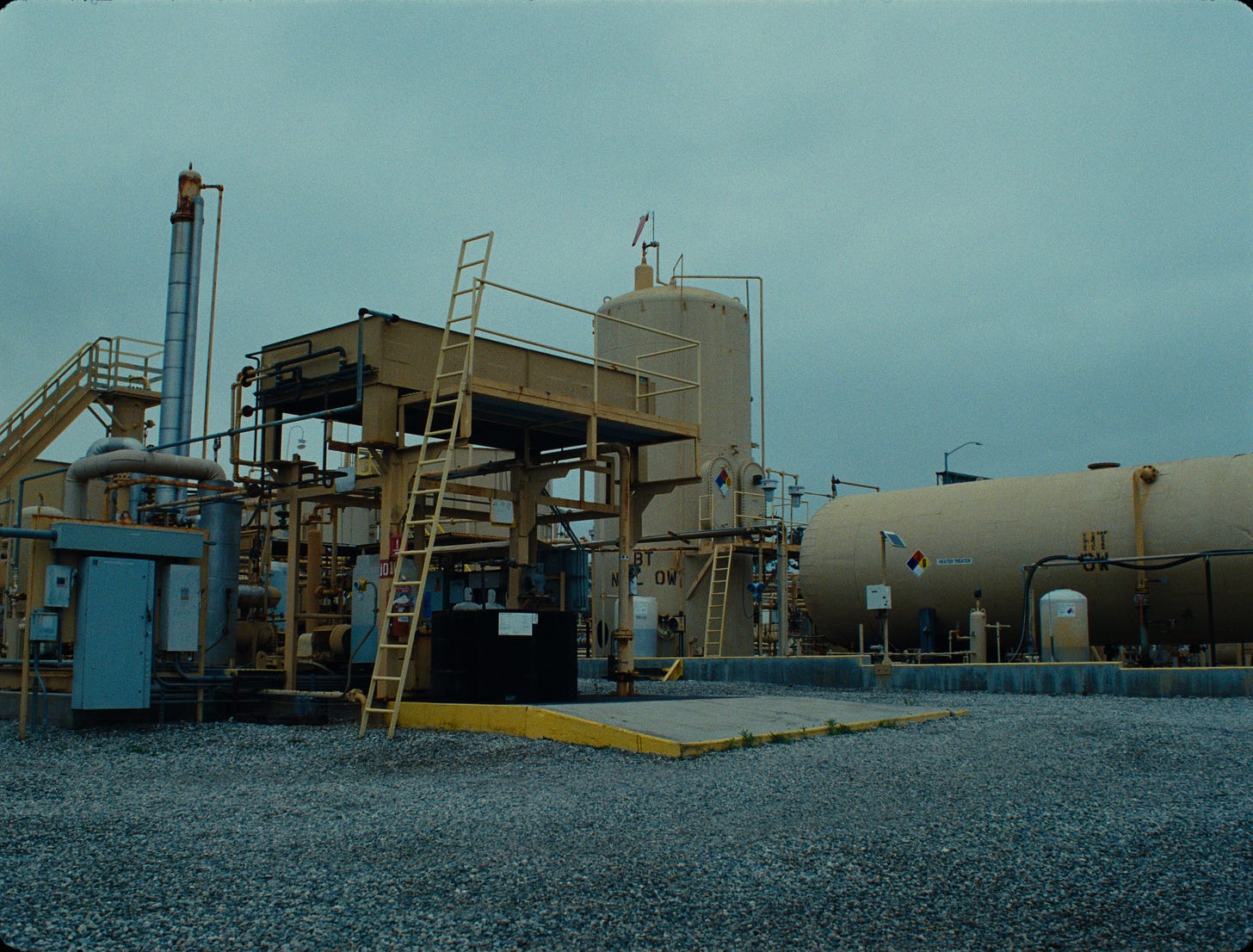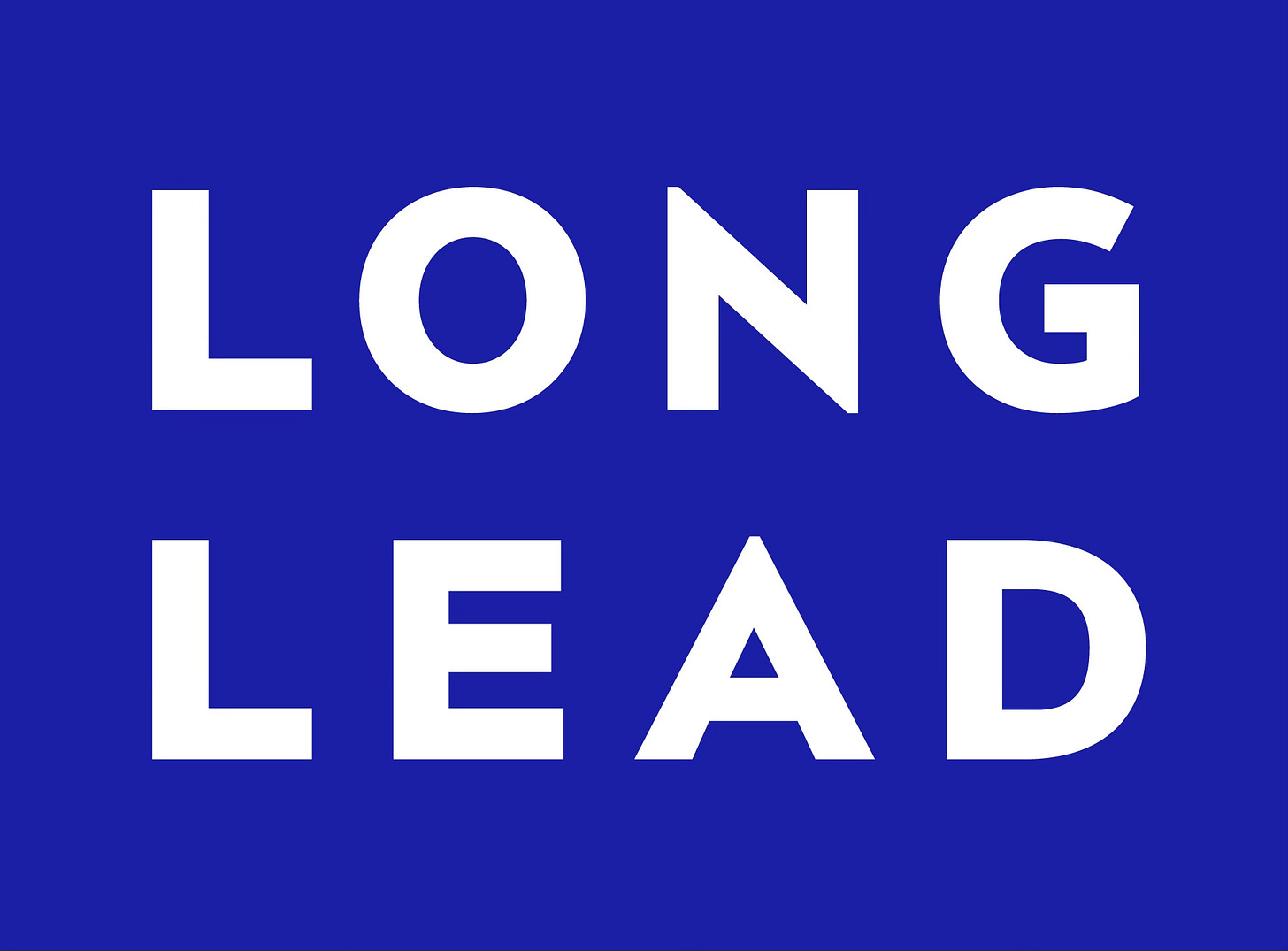Locked out: Judge Carter temporarily bars UCLA from Jackie Robinson Stadium
He also ordered the Bridgeland oil well capped in a fiery, marathon court proceeding that will extend into a second day.

During a “strenuous,” lengthy, and amorphous hearing Wednesday, Judge David Carter barred UCLA from accessing its baseball fields located on the West Los Angeles VA campus and capped an operating oil well also located there.
The moves come more than two weeks after Carter issued his sweeping ruling in the Powers v. McDonough lawsuit in which the judge found leases between the VA and UCLA, the Brentwood School, the Bridgeland oil company and Safety Park (which operates a parking lot on the campus) to be illegal and ordered thousands of units of housing to be built over several years.
Wednesday’s hearing was scheduled to address “exit strategies” for the leases and to clarify where the housing units, both temporary and permanent, would be built.
What ensued, however, was an at times contentious hearing that saw multiple proposals from organizations like UCLA and the Brentwood School be rejected by Carter or the plaintiffs attorneys and real-time negotiations between parties in all corners of the 1st Street Courthouse.
“I really planned… that I was going to lay back today and simply wait for all of you,” Carter said at the end of the hearing that stretched nearly 10 hours. “But nobody in the last two weeks got together, and so therefore, we've had a pretty strenuous hearing today.”

The VA’s lease with UCLA was the final issue addressed Wednesday but garnered one of Carter’s most striking orders.
Throughout the day, counsel for UCLA, Ray Cardozo and Carter engaged on if and when the university’s current chancellor, Darnell Hunt — serving in an interim capacity — would appear to address the school’s lease with the VA.
The school currently leases more than 10 acres of the VA campus for its baseball field, a practice field, and a parking lot in return for rent and “in kind” services like legal assistance for the veterans. The agreement drew much scrutiny during the trial.
Carter threatened to issue an order for security to block access to the baseball field until Hunt appeared in court.
Do you think that might get his attention, Carter asked.
You have his attention, Cardozo said.
No I don’t, he’s not here, Carter answered.
Get the whole story: An epic government scandal hiding in plain sight
Home of the Brave is a multi-part, multimedia series exploring the unhoused veteran crisis at the West LA VA campus, a 388-acre property that was deeded to the U.S. government to provide veterans housing. Over the last 50 years, that land has been carved up and leased to private interests, while development for veteran housing has been painfully slow.
This newsletter reports how veterans are fighting to reclaim the land in a class-action lawsuit against the Department of Veterans Affairs. The feature tells the rest of the story — a land grab dating back to the U.S. Civil War, bursting with government malfeasance, neglect, graft, and even death. Read it today.
Hunt did appear late Wednesday evening, at which point Cardozo made his proposal to the court: The school offered the plaintiffs and the VA to select two acres of its leased acreage to be used for housing while the value of the services would be reappraised.
Throwing a grenade into the agreement right now is not in the best interest of the veterans, Cardozo argued.
Cardozo also took aim at the testimony and examination of Tony DeFrancesco, a UCLA employee who oversees the relationship between the school and the VA.
DeFrancesco had testified under examination by attorney Mark Rosebaum that the lease did not principally benefit veterans.
Cardozo said the testimony was the result of a “clever lawyer’s ability to trip up a witness.”
In a fiery response, during which he turned around to address Cardozo directly, Rosenbaum criticized the lease.
“First of all, no one got tripped up,” he said.
Rosenbaum lambasted the agreement, saying the school counted free tickets to baseball games, hot dogs, and merchandise as part of its “in kind” contributions to veterans.
“When I hear them say two acres, no, that's not the right answer,” Rosenbaum said. “It's not two acres. It's whatever the veterans need to get housing.”
Carter apparently agreed, calling the proposal inadequate and issuing an order barring UCLA from access to the baseball fields beginning at noon Thursday, until and if the school makes a proposal that would principally benefit veterans.
During the trial, Bridgeland, which operates several wells on the campus, attempted to reach a settlement with the plaintiffs offering an increased royalty and a parcel of land to be used for housing.
Carter indicated that he was displeased with the proposal and the settlement was withdrawn from consideration.
On Wednesday, Bridgeland counsel again made a proposal that would have seen an increase in oil royalties up to 5.5% of with the oil company quit claiming 1 1/2 acres to be used for uses like parking.
Did you say 51 percent, Carter asked regarding the royalties.
No, Bridgeland’s counsel answered.
Carter indicated that he was leaning toward capping the well and was not concerned with the discontinuation of the royalty stating that the health of the veterans, especially those with exposures to burn pits and chemical weapons, was more important.
However, he allowed Bridgeland to make another proposal later in the day.
The exchange turned testy.
“Your honor, I’ve explained that if you do --,” the counsel started.
“Did I hear 51% (royalty),” Carter asked again.
“Well, hold on, one of the things we have to talk about is the difference between gross and net.”
“No,” Carter said. “We’re going to cap it.”
Home of the Brave is produced by Long Lead, an award-winning story studio dedicated to finding, financing, producing, and publishing original, in-depth journalism. From photo essays to podcasts and every medium in between, our features have been honored by organizations as varied as the Society of Professional Journalists and the Webby Awards. The American Journalism Online Awards called our work “most likely to inspire future journalists.”
Though the trial is over, we continue our reporting. For more on Long Lead’s award-winning journalism, subscribe to the Long Lead newsletter here:
Among the other issues addressed Wednesday were the Brentwood School, Safety Park and the selection of sites for temporary housing, although each issue is still in progress as of Wednesday evening.
Counsel and representatives for the Brentwood School also made proposals that Carter and the plaintiffs thought were unsatisfactory. One proposal would have seen the school build a separate pool solely for the use of veterans and “give back” some of the land in the lease.
Brentwood School counsel recognized the problematic wording.
“I should probably apologize to everybody. It's not our land, okay,” counsel said. ”All we want to do is use it. It's the veterans’ land.”
Eventually plaintiffs counsel Roman Silberfeld said there was “a tentative agreement on the components of a future agreement” which could include a cash payment made to the VA by the school, an increase in rent and an increase of facility availability for veterans.
The agreement is still subject to “authority” of the plaintiffs.
The plaintiffs also agreed to examine the finances of Safety Park and both the plaintiffs and the VA agreed on a 30 to 45 day window for the selection of sites for 750 units of temporary supportive housing.
Even after Wednesday’s marathon, a second hearing day is set for Thursday.
The injunctive relief hearing for Powers v. McDonough is scheduled to continue Thursday, September 26 at 9 a.m.
Gun Violence: A Uniquely American Problem
Season three of Long Lead’s Murrow Award-winning podcast “Long Shadow” examines the uniquely American problem of gun violence and how, over decades, a carefully manufactured fear has driven explosive demand for firearms across the U.S.
Hosted by Pulitzer-finalist historian and journalist Garrett M. Graff, produced in collaboration with The Trace, and distributed by PRX, this season of “Long Shadow” helps listeners understand how 21st-century America, clad in both camouflage and Kevlar, has become both a bastion of freedom and a land of lockdowns. How did we get here — and can we ever find a way out?
Listen and subscribe wherever you get your podcasts, and learn more at www.longshadowpodcast.com.









